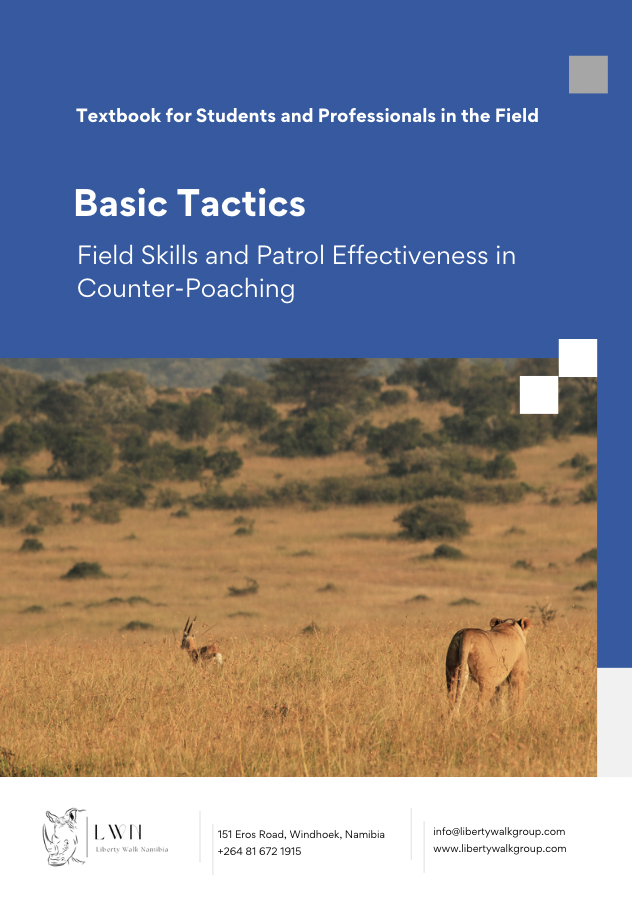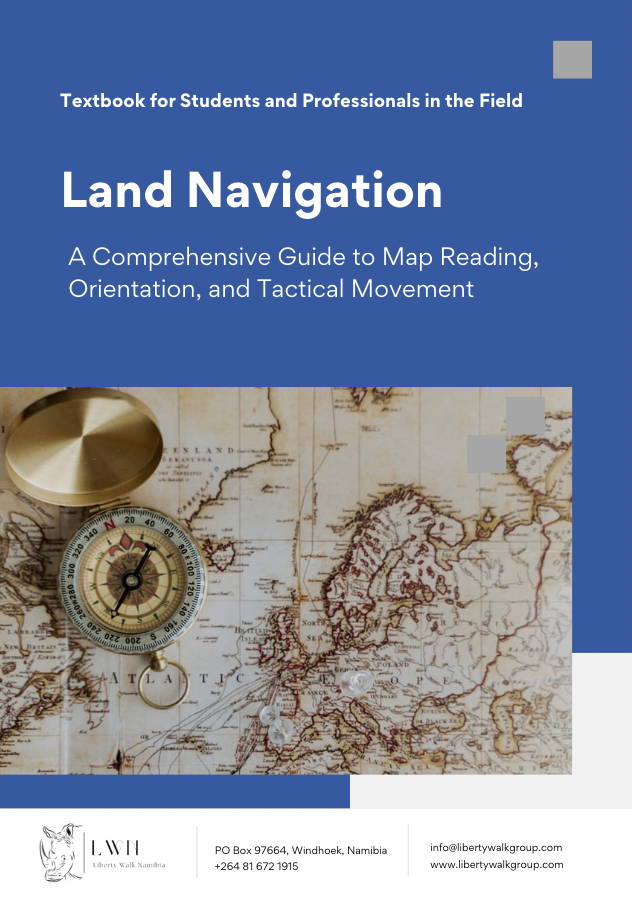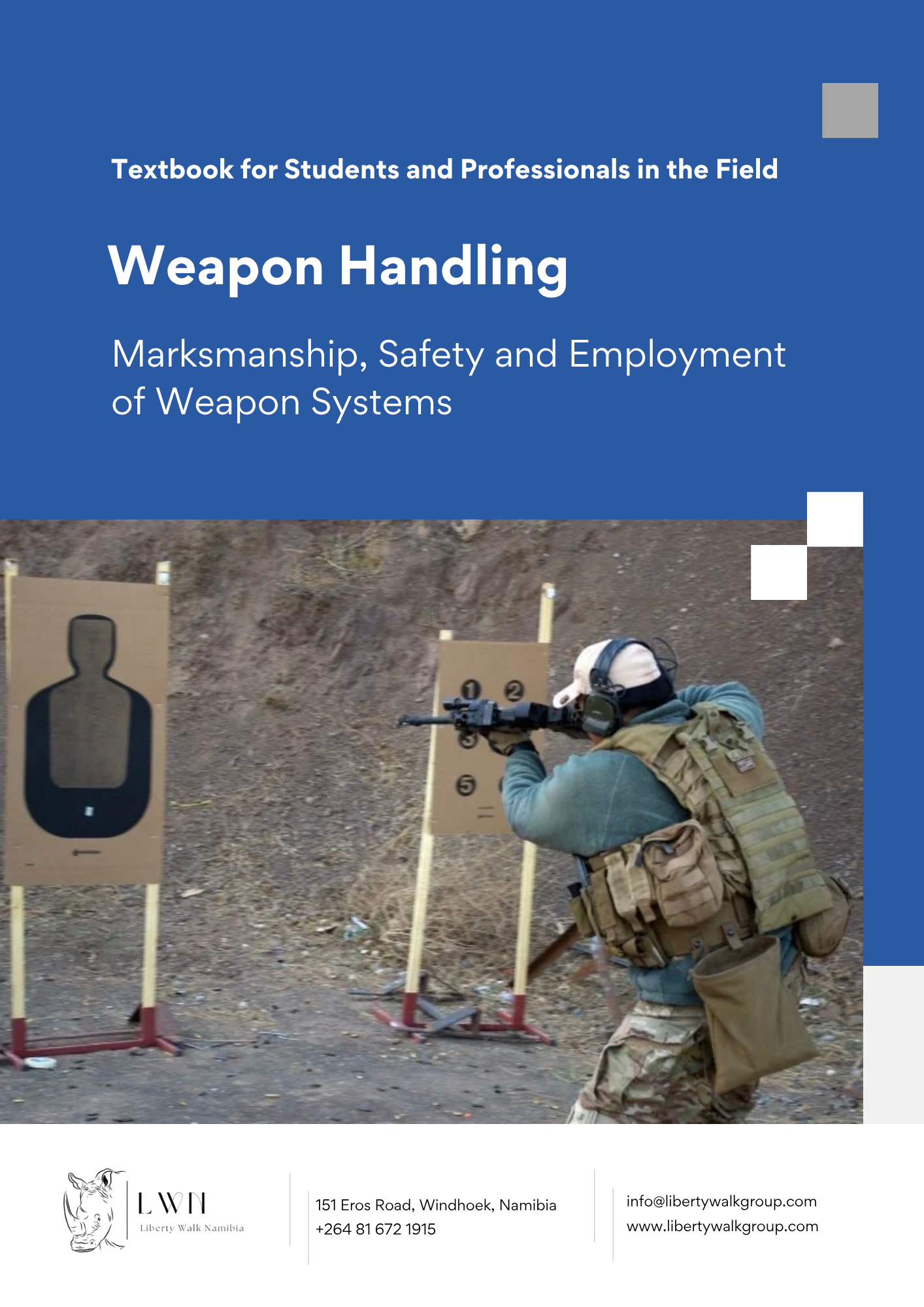Basic Tactics
The "Basic Tactics" syllabus is a cornerstone of the Liberty Walk Namibia Counter-Poaching Curriculum, designed to achieve accreditation under the Namibian Qualifications Authority (NQA) and National Qualifications Framework (NQF).
This framework equips anti-poaching units with tactical skills derived from the British Army, Royal Marine Commandos, and Rhodesian Light Infantry (RLI), adapted for Namibia’s unique conservation challenges. Pitched at NQF Levels 4–6,
it caters to students with basic to advanced skills, complementing syllabi like Counter-Poaching, Advanced Tracking, and Legal Framework.
The syllabus addresses Namibia’s poaching crisis, by training units to operate effectively in diverse terrains while adhering to legal standards.
The framework aligns with NQA standards, including NQF alignment, stakeholder involvement, quality assurance, and It incorporates stakeholder input from conservation organizations (Namibia Wildlife Protection) and law enforcement (e.g., NAMPOL), ensuring relevance and endorsements.
Land Navigation
The LWN Land Navigation Textbook equips anti-poaching rangers with comprehensive navigation skills for counter-poaching operations in Namibia’s conservancies.
Comprising 19 modules, it covers foundational to advanced techniques, including map reading, compass use, GPS, terrain association, and cross-border navigation.
The textbook is part of the National Diploma in Advanced Counter-Poaching Tracking (152 credits), aligning with NQA/NTA standards and MEFT’s Blue Rhino priorities, enhancing ranger effectiveness and wildlife protection.
Weapon Handling Syllabus
IThe "Weapon Handling" syllabus is a critical component of the Liberty Walk Namibia Counter-Poaching Curriculum, designed to achieve accreditation under the Namibian Qualifications Authority (NQA) and National Qualifications Framework (NQF).
This framework equips anti-poaching rangers with the skills to safely and effectively handle carbines, such as the 5.56mm carbine (e.g., AR-15 variants), for counter-poaching operations in Namibia’s challenging terrains, including deserts, savannas, and bushveld.
Pitched at NQF Levels 4–5, it caters to rangers with basic to intermediate skills, building on syllabi like Basic Tactics, Advanced Tactics, and Legal Framework. The syllabus addresses Namibia’s poaching crisis, by ensuring rangers can engage threats while adhering to legal and safety standards.
The framework aligns with NQA standards, including NQF alignment, stakeholder involvement, quality assurance, and a minimum of 120 credits across the curriculum. It incorporates input from conservation organizations ensuring relevance and endorsements. The structure follows the user’s process.
The syllabus emphasizes “Train as we Operate” and “Lead by example,” ensuring instructors model safe weapon handling practices critical for counter-poaching operations.



